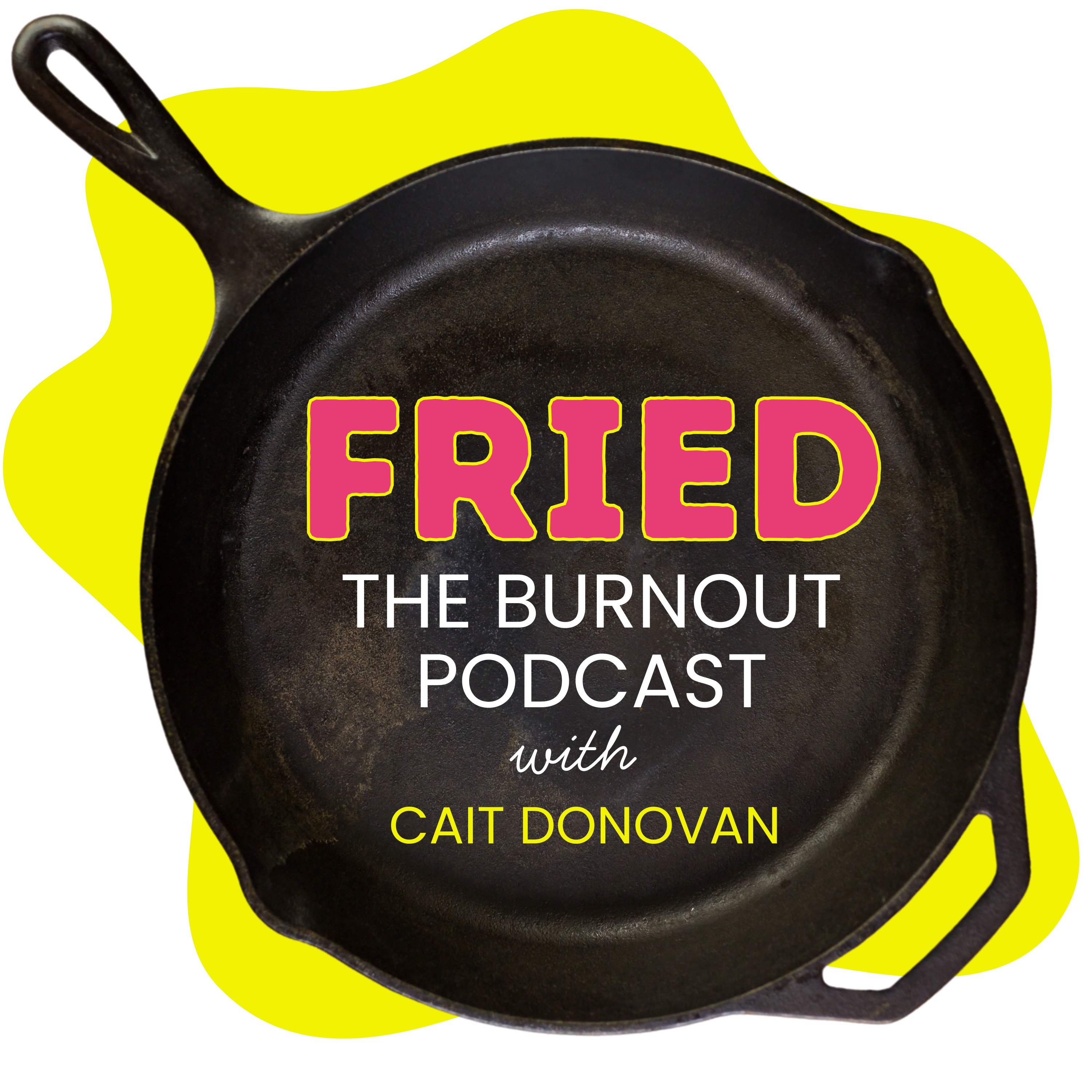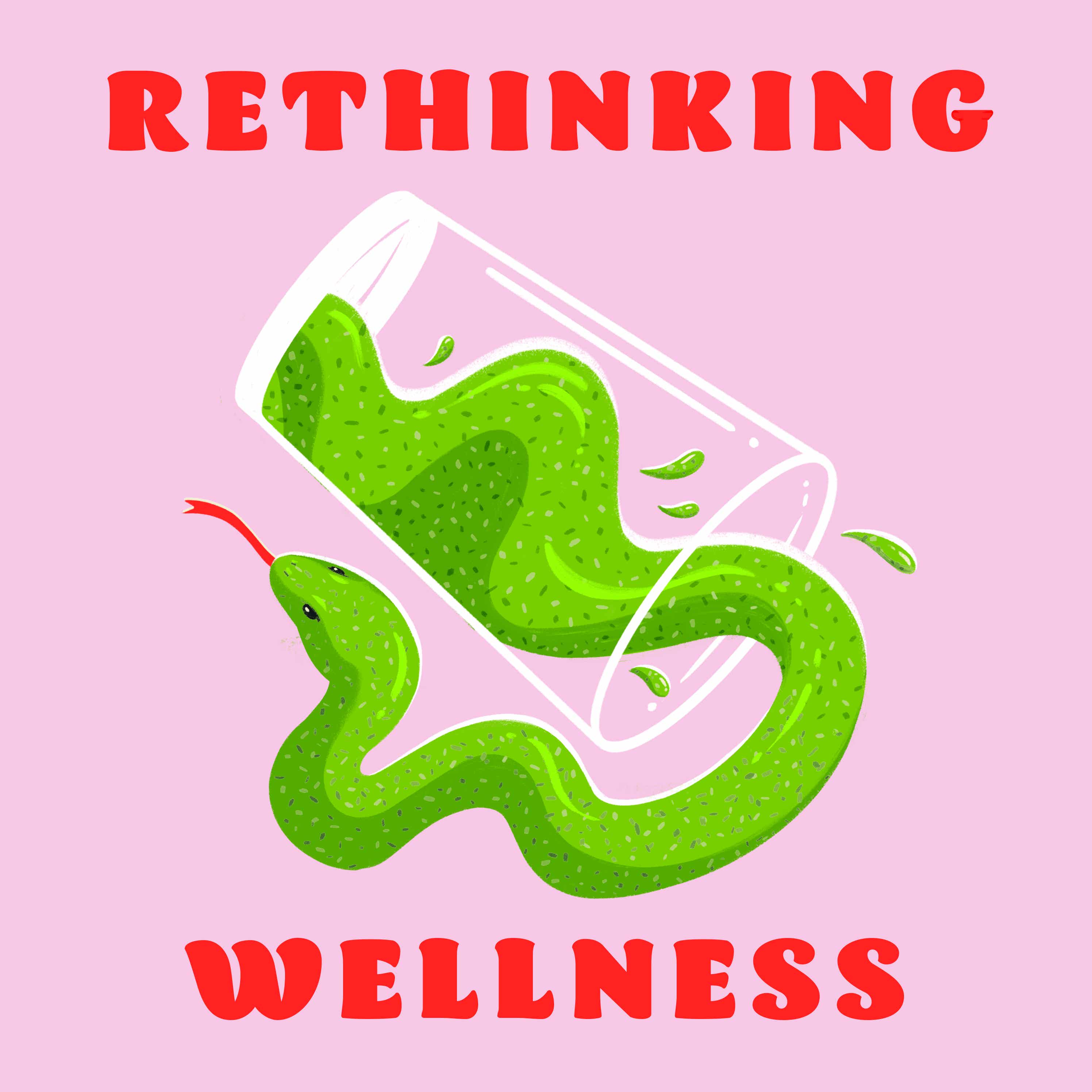.jpg)
LIFE Podcast with Dr. C
Is your personal infrastructure is broken? It may be time for an audit.
Welcome to the official home of The LIFE Podcast.
I am your host, Dr C™, an Organizational Change Doctor with over 25 years of experience diagnosing what makes complex systems fail—and how to make them thrive. I’ve learned that high-performing leaders often apply rigorous strategy to their businesses while letting their personal operating systems run on fumes.
This podcast is where we stop the "grind" and start the strategy.
Each week, we apply the principles of The LIFE Blueprint™ (Learn, Inspire, Flourish, Evolve) to all the dimensions of your well-being. From financial solvency and occupational boundaries to emotional intelligence and environmental design, we move beyond surface-level self-help to discuss systemic changes.
Whether it’s a solo deep-dive or a candid interview with an expert guest, our goal is simple: to help you move from chaos to clarity and design a life you don’t need a vacation from.
Listen. Subscribe. Let's get to work.
LIFE Podcast with Dr. C
The Permission Slip: How to Say ‘No’ Without the Guilt
Have you ever felt that wave of guilt wash over you at the thought of canceling plans, even when you’re feeling completely run down? I’ve been there. Just a couple weeks ago, I was faced with a full schedule while my body was begging for rest, and I had to confront the powerful, conditioned belief that prioritizing my wellness was somehow letting people down. It’s a struggle I know many people face, and it’s why I recorded this episode.
This conversation is your permission slip to finally put your well-being first without the guilt. We'll explore "people-pleasing" and why saying "no" can feel so difficult. I’ll share my own recent story of choosing to practice what I preach by canceling commitments to invest in my health. This isn't about selfishness; it's about sustainability. It's about understanding that true self-care is the foundation that allows you to show up as your best self in every other area of your life. If you're ready to release the guilt and reclaim your energy, this episode is for you.
In this episode, you’ll learn:
- The real reason you feel guilty when canceling plans (hint: it’s not a character flaw).
- How to listen to your body’s signals and respond to them before you reach burnout.
- A powerful mindset shift to reframe rest as a productive and necessary act of self-respect.
- A script to say “no” and set boundaries with kindness and confidence.
Get exclusive listener discounts at mydeals.page/jhrt Click any deal, and the code LIFEPODCAST applies automatically at checkout to save you money and support the show.
Thank you for listening! We'd love to hear from you!
Hola, and welcome back to the live podcast. I'm your host, Dr. C. It's an honor to hold this space with you. As today, we're not just talking about canceling plans. We're talking about giving ourselves permission, permission to rest, permission to heal, permission to prioritize our own well-being without the heavy guilt or burden. Have you ever had one of those moments? You're a few days into feeling under the weather, just completely run down. But your calendar is full. You have commitments, meetings, people counting on you. And this voice in your head says, just push through. You can't let anyone down. And then another quieter voice whispers back, but are you really practicing what you preach? That was me, just a couple weeks ago, staring at my schedule, feeling the weight of my commitments and battling this intense wave of guilt over the thought of canceling. It made me stop and sit with that feeling. Why? Why do you feel so guilty for taking care of yourself? Where does this pressure to push through our own illness come from? Today's conversation is about normalizing rest and reclaiming our help as the number one priority it should be. So take a step soft breath, settle in, and let's begin. To start, let's define what's really happening when that guilt washes over us. At its core, it's often a learned behavior called people pleasing, the act of putting others before our own needs, driven by fear of negative consequences or whatever people might think. For many of us, society has conditioned us to be helpers, to keep everything running smoothly, and to see saying no as a disruption to the social fabric. So, what are the common signs that this is happening? It's that internal debate I just described. It's contemplating pushing through, even when you know you're not feeling well. It's the immediate flood of anxiety when we think about rescheduling, worrying that you're impacting someone else's time and letting them down. It's this pattern of self-neglect is a direct path to burnout, a state of profound emotional, physical, and mental exhaustion. The guilt isn't just an emotion, it's a symptom of an internal energy crisis. And that brings us to the biggest misconception people have when it comes to this topic. The belief that prioritizing yourself is selfish. We tell ourselves stories that self-sacrifice is noble or that others will suffer without our help. But the truth is you cannot pour from an empty cup. As I had to remind myself, if you do not take time for your wellness, you'll be forced to take time for your illness. Honoring your needs isn't selfish. It's essential for survival and sustainability. I want to share a specific moment that brought this all home for me recently. As I mentioned, I had been feeling under the weather for about four or five days. I had presentations planned, podcast recordings with guests scheduled, just life, right? I had commitments. My first instinct was to push through. I thought about my guests, how they had carved out time to be with me. And the guilt was immediate and intense. I felt truly bad about the idea of canceling. But then my own words came coming back to me. I have a slide in my presentation that says, if you don't take time for your wellness, you'll be forced to take time for your illness. And in that moment, I realized I was being a hypocrite. So I did it. I canceled my commitments. I let people know I wasn't feeling well and needed to reschedule. And it was uncomfortable, but it was a profound act of self-respect. It was me intentionally choosing to invest in my wellness so that I could return to my work, my life, and to the people I serve as my best self. I had to normalize putting my wellness first because I can't pour from a half-filled cup. That single action, choosing rest over guilt, was a powerful reminder that our well-being is the foundation for everything we do. For those of you who are inspired and ready to take action, let's talk about the how. The first practical step you can take this week is to simply stop and conduct the self-assessment. When you start to feel run down, before you even think about your commitments, ask yourself, what am I feeling? Is my throat scratchy? Does my head hurt? Am I just tired? Get to know your body signals so that you can respond to them and not ignore them. Now, the hardest part is often overcoming that internal resistance, right? The guilt. A specific technique I could I recommend is to reframe the situation. You're not just canceling plans, you're rescheduling them because you need to invest in your wellness. This isn't an act of irresponsibility, it's a necessary act of maintenance. Your body's need for rest is a biological mandate. Well, the guilt is learned through social construct. Let biology win. Once you have the basics down, a more advanced strategy is to apply this to a new request. So before they even become commitments, right? When someone asks for time for your time, instead of automatically saying yes, give yourself permission to pause, you can say something gracious for but firm, like, thank you so much for thinking of me. Unfortunately, I don't have the bandwidth to take on a new commitment right now. This prevents overcommitment and protects your energy from the start. Okay, so beyond the immediate relief of a clear schedule, the single biggest long-term transformation I've seen in people who master this skill is the development of unshakable self-worth. When you consistently make choices that honor your needs, you send powerful messages to your subconscious. I am worthy of care. I'm going to repeat that. When you consistently make choices that honor your needs, you send a powerful message to your subconscious that I am worthy of care. This builds a profound sense of self-respect that radiates into every area of your life, fostering healthier relationships built on authenticity, not obligation. Mastering this changes how you see yourself in the future. You stop seeing yourself as someone who is constantly trying to keep up, and you start seeing yourself as the protector and curator of your own precious energy. You understand that your ability to serve, lead, and love depends entirely on how well you take care of yourself first. So, if you could do one thing differently tomorrow to begin this evolution, I would recommend this. Take a few minutes to get to know your body when it's at its best. What does it feel like to be well rested, energized, and healthy? Truly understand that baseline. The more aware you are of how your body functions in its optimal state, the quicker you will recognize the subtle signs when something's off, allowing you to act with intention instead of guilt. As we close out our time together today, I want you to hold on to this truth. Prioritizing your well-being is the only way you can truly show up in the lives of others. It is not selfish. It is not a weakness. It is your greatest responsibility and your greatest strength. So, the next time you feel that pull between commitment and your well-being, I hope you remember this conversation and grant yourself the permission you deserve. And choose to invest in your well-being. Choose you. Thank you for joining me today and investing this time in your well-being. Until next time, keep on learning, stay inspired, continue to flourish, and never stop evolving. I'm your host, Dr. C, and this is the Live Podcast.
Podcasts we love
Check out these other fine podcasts recommended by us, not an algorithm.

What Now? with Trevor Noah
Trevor Noah
The Mel Robbins Podcast
Mel Robbins
Hidden Brain
Hidden Brain, Shankar Vedantam
FRIED. The Burnout Podcast
Cait Donovan, Top Burnout Expert for Corporate and Nonprofit Organizations

